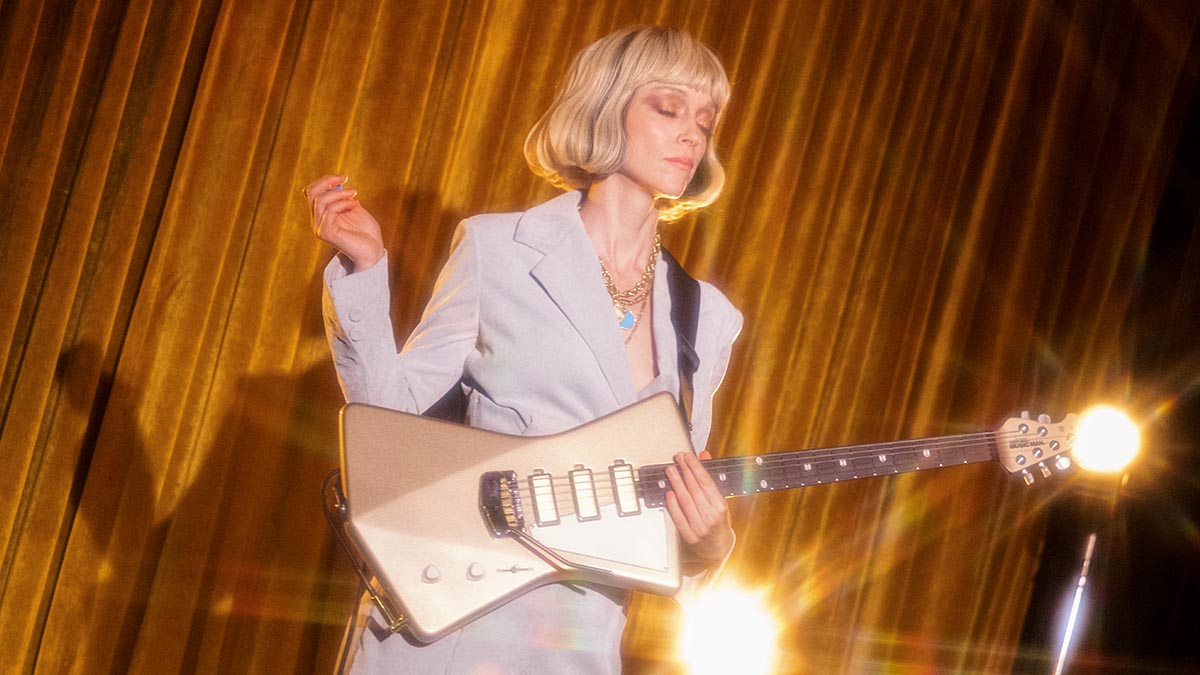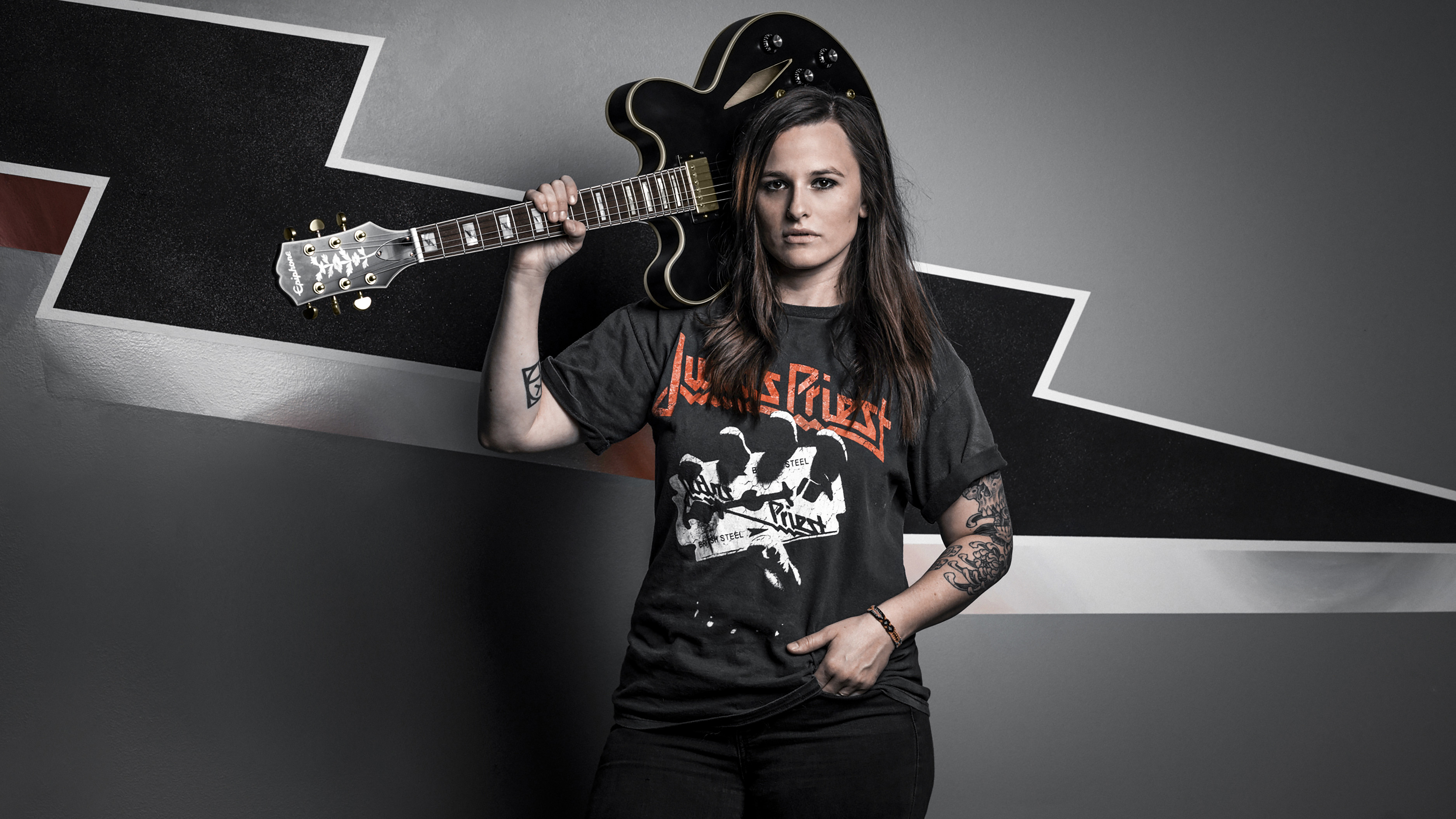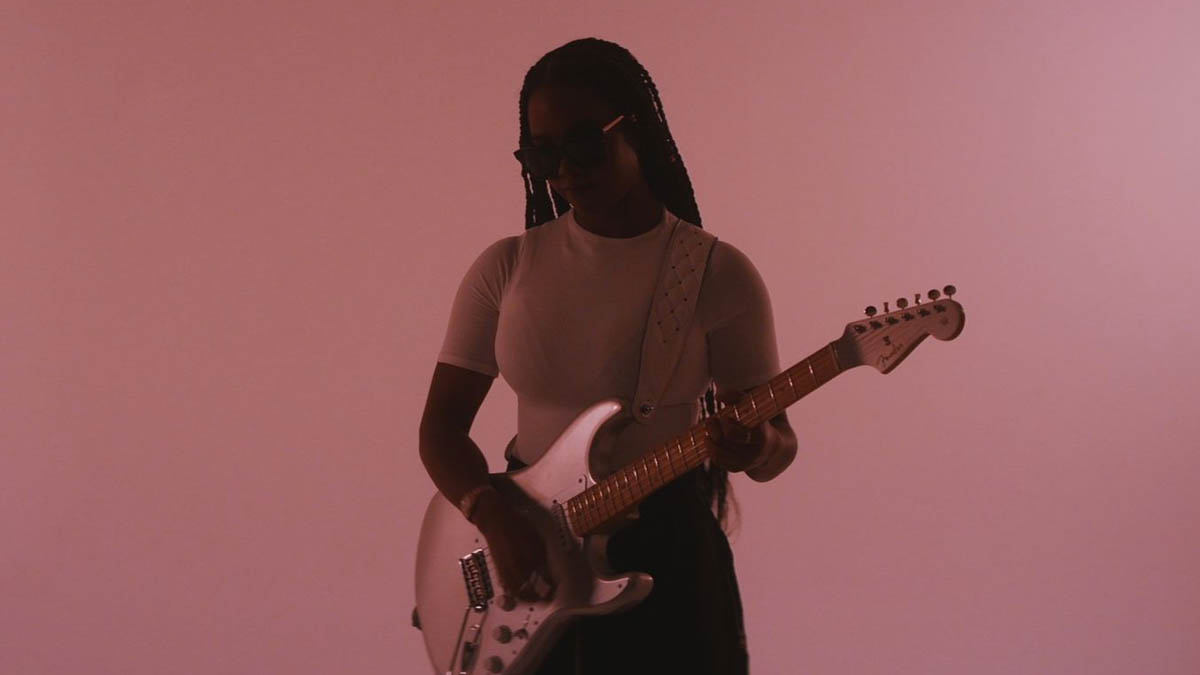New study finds that fewer than 6 per cent of signature electric guitars are made for female and non-binary players
The data from Find My Guitar indicates how far the market for production line signature models needs to change to reflect the diversity of the people who are playing the guitar

According to a new study conducted by the internet guitar database Find My Guitar, only 5.7 per cent of all signature electric guitars are made for female or non-binary guitar players.
Find My Guitar’s methodology excluded acoustic guitars and limited edition instruments. The study polled 21 leading guitar brands and reported that out of 214 signature guitars only 13 were not designed for male players.
Referencing Fender’s 2018 survey in which its research concluded that half of all all beginner and aspirational players were women, Find My Guitar’s Rachel Aguirre argued that designing signature guitars with and for women both “recognised and validated” female guitar players, helping to boost their profile and in turn provide role models for a new generation of players.
“There are also practical benefits to having women co-create signature guitars with companies,” wrote Aguirre. “Lari Basilio designed her signature guitar with a fretboard that gets flatter going up ‘which is the easiest for the size of my hands.’ Women generally have smaller hands than men.”

Out of the 21 brands surveyed, some 13 did not have an artist collaboration with a female player, including Gretsch, PRS, Jackson and Charvel. PRS runs the Orianthi signature model but that is a Private Stock limited edition Custom 24 which is only available to order until 31 December 2022.
Epiphone’s artist roster was the most diverse with two out of its seven signature models for Emily Wolfe and Nancy Wilson. In the present lineup it also has a Joan Jett Olympic Special modelled after the rock icon’s number one stage guitar, but as this is a limited-edition instrument it was not included.
Of Fender’s 31 signature electrics, all except the the Chrissie Hynde Telecaster, and signature Stratocasters for H.E.R. and Tash Sultana, who identifies as gender fluid, were for male players.
Get the MusicRadar Newsletter
Want all the hottest music and gear news, reviews, deals, features and more, direct to your inbox? Sign up here.
When Fender launched the H.E.R. Strat – which, incidentally, is one of the coolest signature models it has on the roster – it said it supported a commitment to supporting more female players with artist collaborations, with CMO Evan Jones noting that it was ”an important next step toward expanding the cultural relevance of guitar and the Fender brand.”

H.E.R. said that she hoped the guitar would inspire more young women from all backgrounds to take up the instrument.
”By designing a Stratocaster with a colour, shape and sound that is 100 percent my own, my hope is that other young women and players from all backgrounds feel inspired to pick up this guitar, tap into their thoughts and create amazing music,” she said.
There are many things to be taken from Find My Guitar's data, not least that the market for signature models has some way to go before it reflects the demographics of the guitar-playing public.
To see a breakdown of the data, which updates dynamically as the database is refreshed, head over to Find My Guitar.
Jonathan Horsley has been writing about guitars and guitar culture since 2005, playing them since 1990, and regularly contributes to MusicRadar, Total Guitar and Guitar World. He uses Jazz III nylon picks, 10s during the week, 9s at the weekend, and shamefully still struggles with rhythm figure one of Van Halen’s Panama.
“These guitars travel around the world and they need to be road ready”: Jackson gives Misha Mansoor’s Juggernaut a new lick of paint, an ebony fingerboard and upgrades to stainless steel frets in signature model refresh
“It’s about delivering the most in-demand mods straight from the factory”: Fender hot-rods itself as the Player II Modified Series rolls out the upgrades – and it got IDLES to demo them










